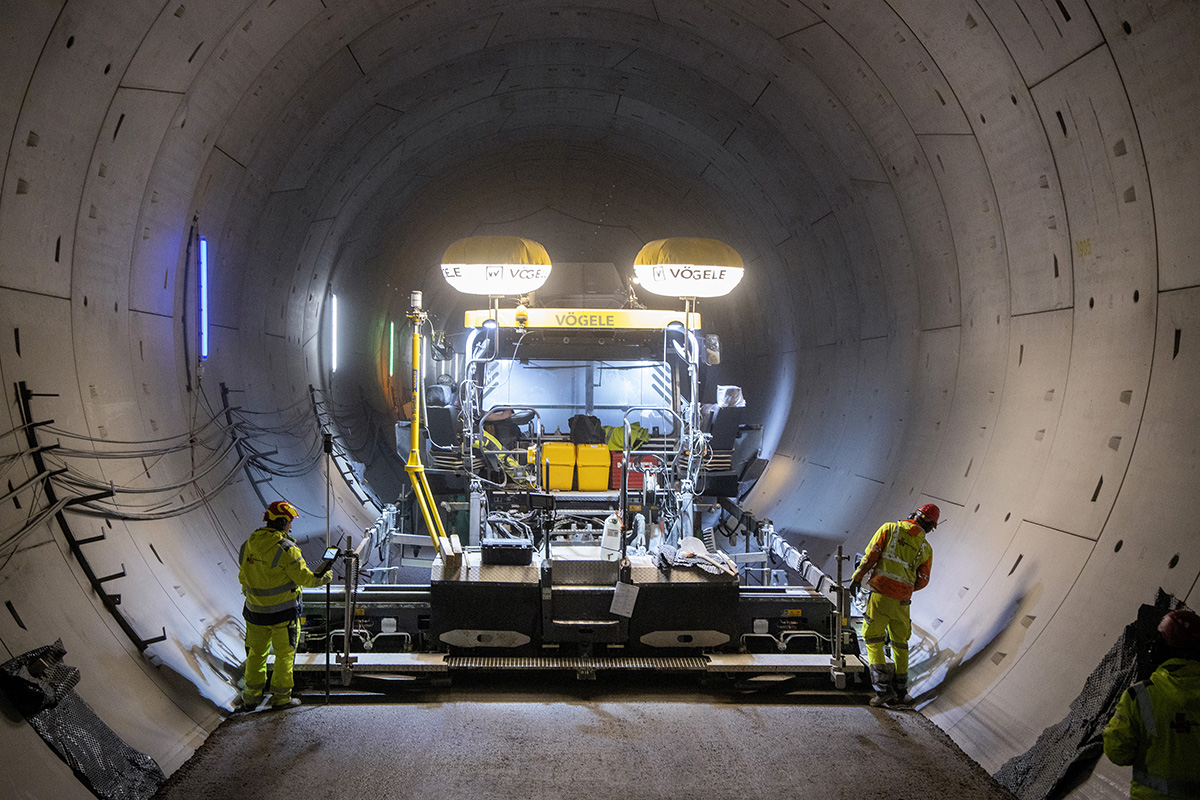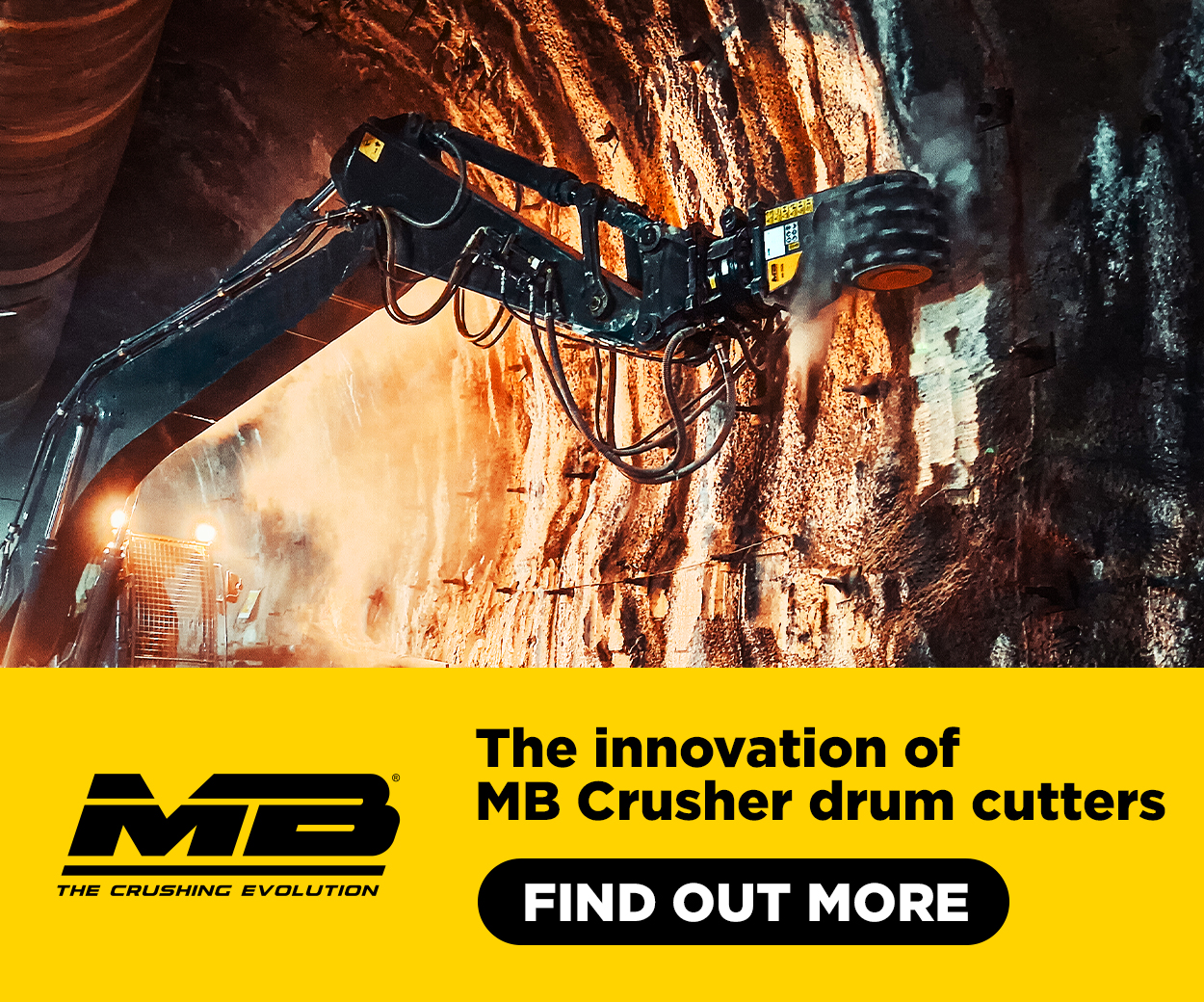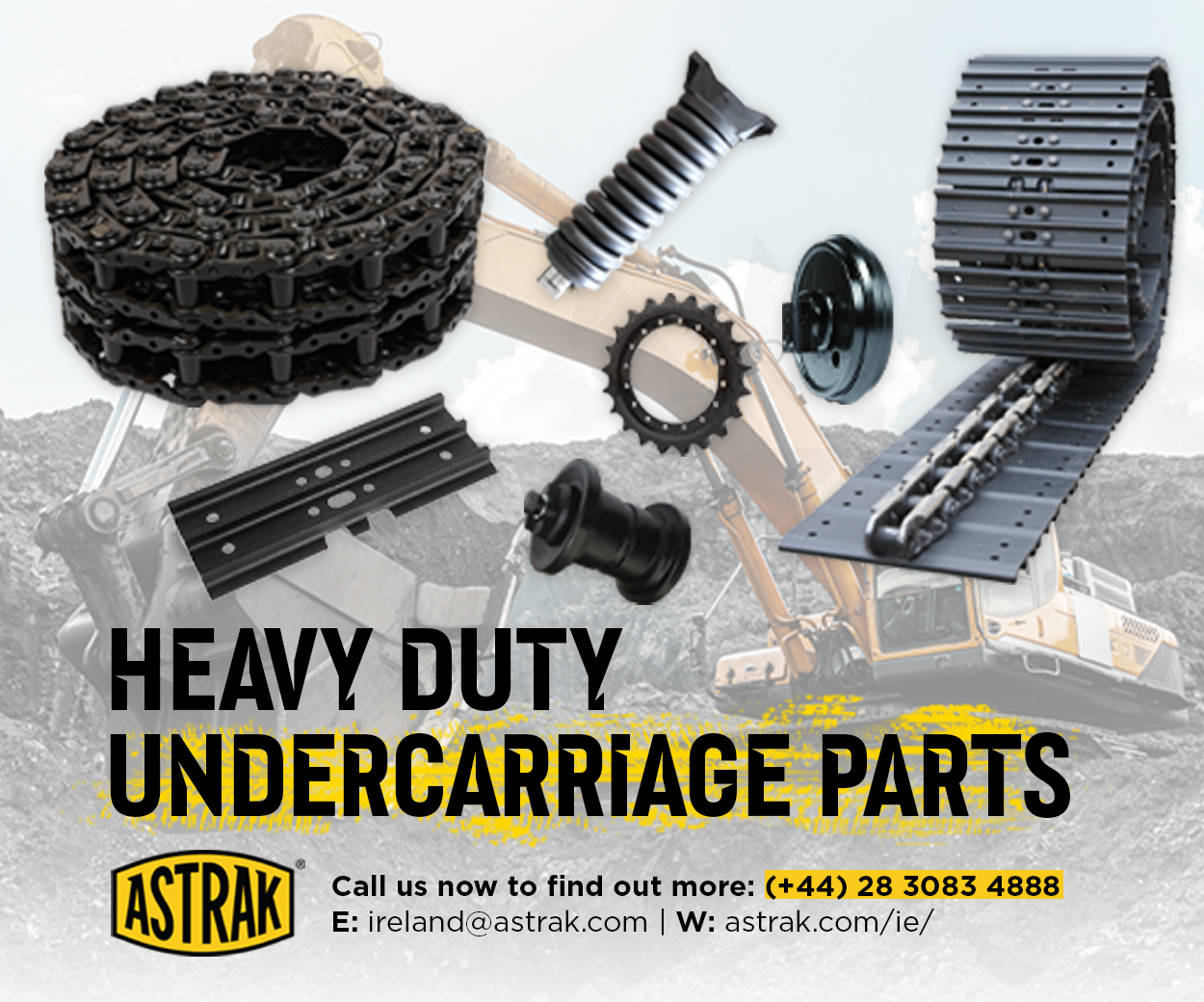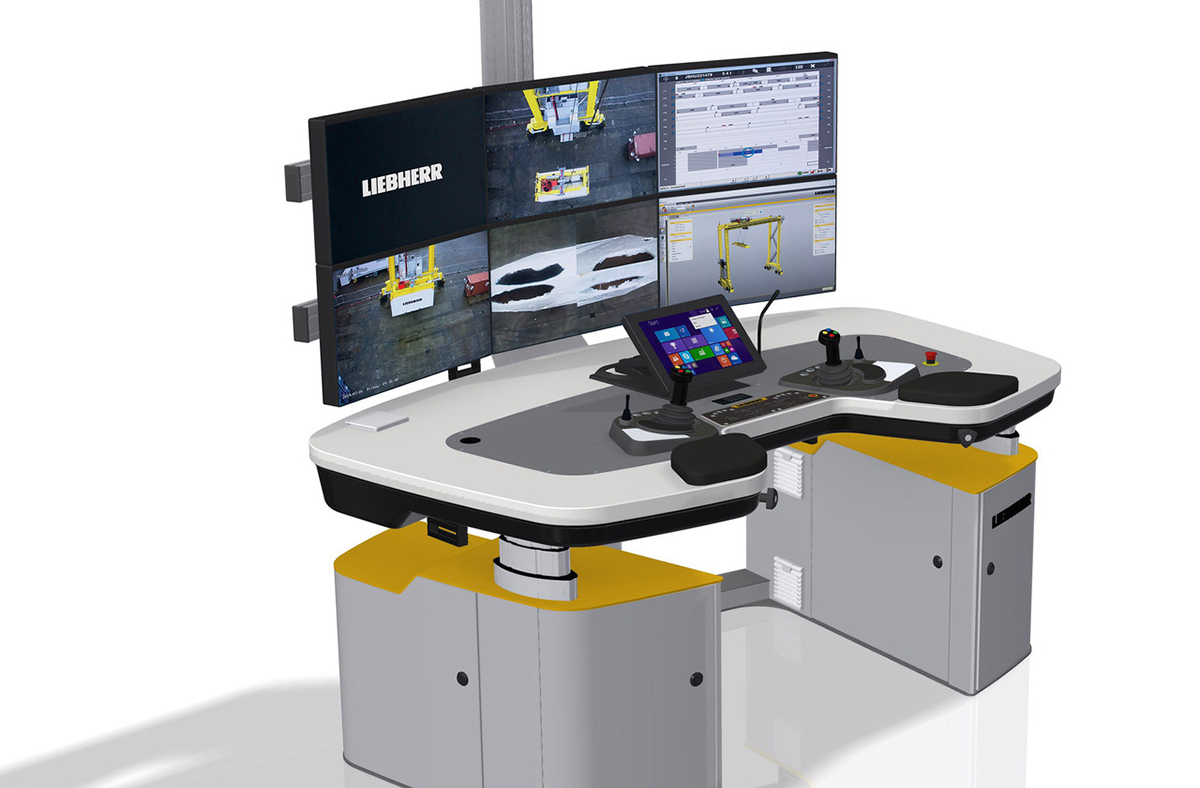Five water-bound base layers, stringent requirements on evenness and logistical challenges … paving in the 8 km-long bores of the Albvorland Tunnel plus an additional section of the Deutsche Bahn’s Stuttgart-Ulm project was quite tough. The contractor appointed by construction service provider Implenia Construction GmbH met the challenge using the Vögele SUPER 2100-3i large paver including high-compaction screed and 3D control system as well as the MT 3000-2i Offset material feeder.
Road construction projects in rail tunnels are particularly demanding. On the one hand, the cramped job site situation requires perfectly integrated logistics. On the other, the requirements on the track bed are huge: high-speed sections have to be absolutely even and withstand extreme loads. This is because Deutsche Bahn trains are not only running at higher and higher speeds, they are also becoming longer and running more frequently. As a consequence, a permanent carriageway was to be paved in the Albvorland Tunnel, which is 8.176 m long and is a section of the Deutsche Bahn Stuttgart-Ulm project designed for a speed of 250 km/h. Permanent carriageways generally consist of an anti-freeze layer, a water-bound base and a layer of concrete or asphalt; they can withstand much higher loads, have a longer service life and are virtually maintenance-free compared to ballast beds. The structural requirements for the Albvorland Tunnel carriageway were even more stringent than usual: construction service provider Implenia Construction GmbH München appointed contractor Kurt Gansloser GmbH to pave five water-bound base courses each 25 cm thick and a rolled-concrete layer 12 cm thick in the two single-track tunnel bores and in another section some 3 km long. Pave width was 6.5 m. On the one hand, the aim was to raise the base of the tunnel to the desired level and to create a particularly low-settlement foundation for sleepers and rails. On the other hand, this also helps Deutsche Bahn ensure that rail operations cause no damage to the cables underneath.
Vögele SUPER 2100-3i paver – ideal for projects involving tunnels
“On projects like this, each cog needs to mesh with the next. Precise planning, a competent team and powerful machines are essential”, says Christopher Gansloser, managing director of Kurt Gansloser GmbH. “The subject of emissions plays an important part on tunnel job sites, in particular.” This is why the civil engineering specialists put their trust in Vögele’s SUPER 2100-3i large paver. This Highway Class machine has a laydown rate of up to 1,100 t/h and with its modern drive concept, is perfect for projects involving tunnels. The engine is fitted with a multi-stage exhaust exhaust emissions after-treatment system including a diesel particulate filter and thus meets the strict guidelines of European exhaust emissions standard stage V. Intelligent engine management and the so-called EcoPlus package reduce fuel consumption and emissions by up to another 25%.
Over and above this, the paver scored extra points for being simple to operate and clearly arranged: in spite of the cramped conditions and meagre tunnel lighting, drivers and operators had a good view of all the relevant areas of the machine and the job site. This is on the one hand because all paver operator’s ErgoPlus 3 consoles are backlit to reduce glare. On the other hand, LED lights in the roof of the machine, additional light balloons and LED spotlights in the screed operator’s consoles ensured comprehensive illumination of the entire area of operation.















